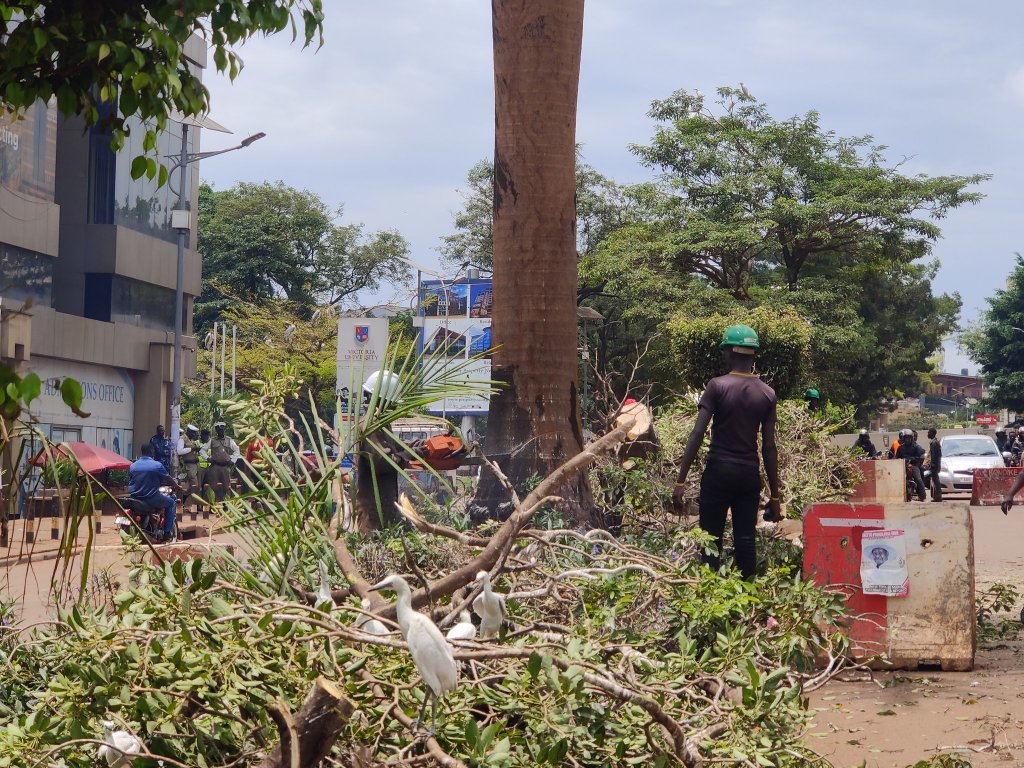Hundreds of egrets, a common bird species in Uganda, were left without homes after Kampala Capital City Authority (KCCA) cut down trees where they had been nesting. The operation took place on several major streets in Kampala, including Entebbe Road, Jinja Road, and Kampala Road, leaving flocks of egrets stranded by Saturday night, October 12, 2024.
The tree removal by KCCA also destroyed the birds’ nests, which included many chicks. The birds, accustomed to perching on tree branches to avoid ground predators, were seen seeking shelter on traffic islands. As vehicles passed by, their headlights revealed adult birds attempting to protect their young.
The felling of the trees drew concern from some members of the public, including pedestrians and vendors, who felt that the birds should have been relocated before the trees were cut down. One fruit vendor remarked, “These KCCA people should have called the people at the zoo to take the beautiful birds.”
The Uganda Wildlife Conservation Education Centre (UWEC), located in Entebbe, is home to over 250 bird species, including egrets, and could potentially provide a refuge for the displaced birds. The centre recently opened a new African Grey Parrot Conservation Centre aimed at protecting parrot species from poachers. However, no arrangements were made for the egrets before the trees were removed.
This is not the first time such an event has taken place in Kampala. About four years ago, the Uganda Wildlife Authority (UWA) carried out an operation to relocate egrets and marabou storks from trees near the Parliament buildings. The operation involved UWA workers using cranes to collect nestlings and eggs from the treetops. The nests were also removed to ensure the birds did not return to the area.
KCCA’s decision to remove the trees without relocating the egrets has raised questions about urban wildlife management and the balance between city development and conservation. The fate of the stranded birds remains uncertain, as there has been no official statement on whether they will be relocated or left to find new habitats on their own.




















